
New Domain Addresses: Implications of Extensions and Movement Towards a .COM & Not-.COM World
As a result of the recent announcement by ICANN (the governing body that oversees domain internet addresses), everyone is left wondering what the implication of new domain name extension will be. And, without being overly dramatic, there are huge implications of these extensions. It simply doesn’t matter if you’re launching a startup or an entrepreneur with a online store, you’ll be impacted by this decision.
Particularly because the news is so important, our Domain Development Team has put together the following article. Here, our Strategic Planning team outlines their assessments, challenges, and the new opportunities for small businesses and anyone else who’s doing business online.
Simplified IP Addressing System
In the first place, to understand this complicated subject, let’s begin with a bit of background. A domain name is just a convenient addressing system for the numerical IP internet address for a website. Instead of typing in a numerical IP address, ICANN has created a protocol consisting of a series of letters, numbers or hyphens followed by a “dot.”
To the right of the “dot” are the ICANN established top level domain extensions (TLD). For example, the three most commonly used extensions are, “com,” “net,” and “org.”
ICANN has also established TLD extensions for specific countries and applications but, more on that below.
For example, if you were trying to reach the Brandings® website, there’s two ways of getting here. One, you can type the cumbersome IP internet address 97.74.60.211 into your browser. However, ICANN has made finding our website much easier. The second way to reach our site is by allowing us to type the more memorable Brandings.com.
Country Code TLDs
ICANN established two letter codes for over 240 countries and external territories. These “country code” TLDs are commonly referred to as ccTLDs.
The three most commonly used country specific domain extensions are DE for Germany or DEutschland, CN for ChiNa, and third is UK for the United Kingdom. Other examples include .us, .jp, .de, .ru.
Generic TLDs
Expanding further, ICANN also establish TLDs composed of three or more characters. These are referred to as “generic” TLDs, or gTLDs. The dot-com domain extension was initially intended simply for commercial use. However, through widespread adoption they’ve become the global standard for business. Over the years ICANN has approved additional gTLDs.
Some examples include:
.aero – For use primarily in the air-transport industry.
.asia – For use by companies, organizations, and individuals based in the region of Asia, Australia, and the Pacific.
.biz – For use by business.
.coop – For use by cooperatives.
.edu – For use by accredited post-secondary institutions.
.gov – For use by U.S. governmental entities and agencies.
.info – For use by informational resources and agencies.
.int – For use by organizations, offices, and programs which are endorsed by a treaty between two or more nations.
.jobs – For use by established companies with jobs to advertise.
.mil – For use by the U.S. military.
.mobi – For use by mobile-compatible sites.
.museum – For use by verified museums.
..name – Primarily used for individual names.
.net – Originally developed for network use, now open for general registration.
.org – Originally developed for non-profit organizational use, now open for general registration.
.pro – For use by licensed or certified lawyers, accountants, physicians and engineers in France, Canada, UK and the U.S.
.tel – For use by internet communication services.
.travel – For use by verified travel-related entities.
New gTLDs
On January 12, 2012 ICANN began accepting applications for new gTLDs. The initial application fee started at $185,000 (USD) with annual maintenance fees begin at $25,000 (USD) simply for the right to secure a new gTLD. Now with the opening of the floodgates to the new gTLDs, our team has identified ten challenges and opportunities for the marketplace as expressed in the list below.
10 Implications of the New Domain Name Extensions on Business:
- Reaffirmation of Domain Name Addressing System – The new gTLDs firmly establish the long-term viability of domain names as an addressing system. There was talk that ICANN would establish a new addressing system without a TLD. ICANN’s move to add a myriad of new gTLD powerfully concretizes the domain name addressing protocol.
- Strengthening .com Domain Extension – When starting a business, entrepreneurs are looking to build their company around a brand. The overwhelming acceptance of the .com extension for business has turned the extension into a de facto name screening mechanism.
- Tip: No growth-driven firm would consider adopting a company name without owning the “exact-match” .com extension. With the proliferation of new gTLDs the .com extension will become more important and valuable.
- Consumer Confusion – New gTLDs will likely cause initial consumer confusion. Consumers have come to expect that the address of an established business to be the company name followed by .com.
- Consider this, .museum, .pro, .biz, .info and .jobs have been around for a while and are rarely used. They simply cause too much confusion and likely drive traffic to competing .com domains.
- gTLD Opportunities – Some strategically focused gTLDs will thrive. Here are a few examples that could work …
- .hotel could be a good extension for lodging – paris.hotel, london.hotel, beijing .hotel
- .nyc could be a great extension for businesses located in New York City – taxi.nyc, tours.nyc, nightlife.nyc
- .weather could be a useful extension for consumers – tokyo.weather, mumbai.weather, sydney.weather
- .movie could be useful for moviegoers – casablanca.movie, terminator.movie, gonewiththewind.movie
- Corporate Opportunities – Large companies with the resources to pay the initial $185,000 application fee and annual maintenance fees will have the opportunity to use their company name as a gTLD.
- As an example Sony could use the .sony gTLD for specific product websites like playstation.sony, electronics.sony, music.sony. Disney could use the .disney gTLD for themeparks.disney, toys.disney, and animation.disney.
- Branding Challenges – Companies will need to sort out some awkward applications. For example, will the main page for Disney be disney.disney or disney.com? sony.sony or sony.com? Large firms will undoubtedly retain their .com domain extensions. For large consumer product firms, the product name usually comes after the company name, not before it.
- For the most part, we know these products as Apple iPhone, Post Raisin Bran, and Dell Computer not iphone.apple, raisinbran.post and computer.dell. Firms will need to think through the branding implications.
- Multiple Industry gTLDs – There will likely be a number of similar gTLDs created for an industry and marketplace. Singular and plural gTLD extensions have the potential for consumer confusion.
- For example, the automobile industry could see the following gTLDs — .auto, .autos, .car, .cars, .automobile, .automobiles, and more. There will likely be many confusingly similar gTLDs that will require major branding campaigns and consumer education.
- Second Tier gTLDs – With the proliferation of new gTLDs, second-tier domain extensions like .net, .org, .info and country code extensions will likely lose value and prominence. There will simply be too many extensions for consumers to process. These lesser known extension will simply get swept up into the new gTLD mix.
- Decrease in Super-Premium Generic Domains – The addition of new gTLDs will likely diminish the value of super-premium generic domain names. It will be more cost effective for some firms to buy the gTLD rather than the generic .com. For example, it will likely be less expensive for a firm to buy the gTLD extension .food than to acquire food.com.
- Movement to a .com & Not-.com World – The more TLDs introduced the more important the .com extension will become. In a world of turmoil, the marketplace will likely turn into a .com and not-.com world. The turbulent environment will affirm the .com extension as the TLD of choice for business. The .com extension should continue to be the established domain extension for small, mid-size and large business.
To summarize, no one knows for certain how all of this will shake out. Check back with us and we’ll keep updating our assessment as the marketplace absorbs the tidal wave of new TLDs.
Where To Find the Best Domain Names
Incidentally you can find thousands of “predeveloped” company and brand names, product names and domain names in Brandings company name database. Just click on this link to search for the perfect business name.
Check Out These New Catchy & Engaging Domain Names — Just Acquired:
Related Articles & Postings:
TOPIC: Understanding Domain Names Outlined in this article we’ll demystify domain extensions and take you step-by-step through the essentials of what you need to know. We’ll share the basics of domain extensions and assess the value of acquiring non-.com extensions. In addition, we’ll discuss the differences and value of “top-level domains” (TLDs), “country code” TLDs (or “ccTLDs),” and “generic” TLDs (or “gTLDs).” To learn more read the full article, click here: Domain Names
TOPIC: What is a Domain Name? The “What is a domain name” article is a simple introduction to domain names and extensions. And is especially intended for the beginner just getting their business off the ground and online. If you want to learn the basics of domain names, check out this posting. Our domain professionals will walk you through all the key elements of domains step-by-step. To read the full article, click here: Domain Names 101
TOPIC: Domain Generator There are many ways to find an available domain name. One great tool is the Brandings Domain Generator. Within minutes the domain name generator will help you create a great domain name. The generator is easy to use and will create 250 great invented domain names. To read the full article, click here: Free Domain Generator

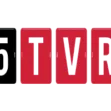
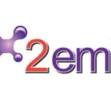
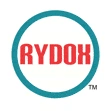
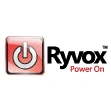
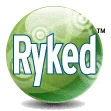
Comments are closed.